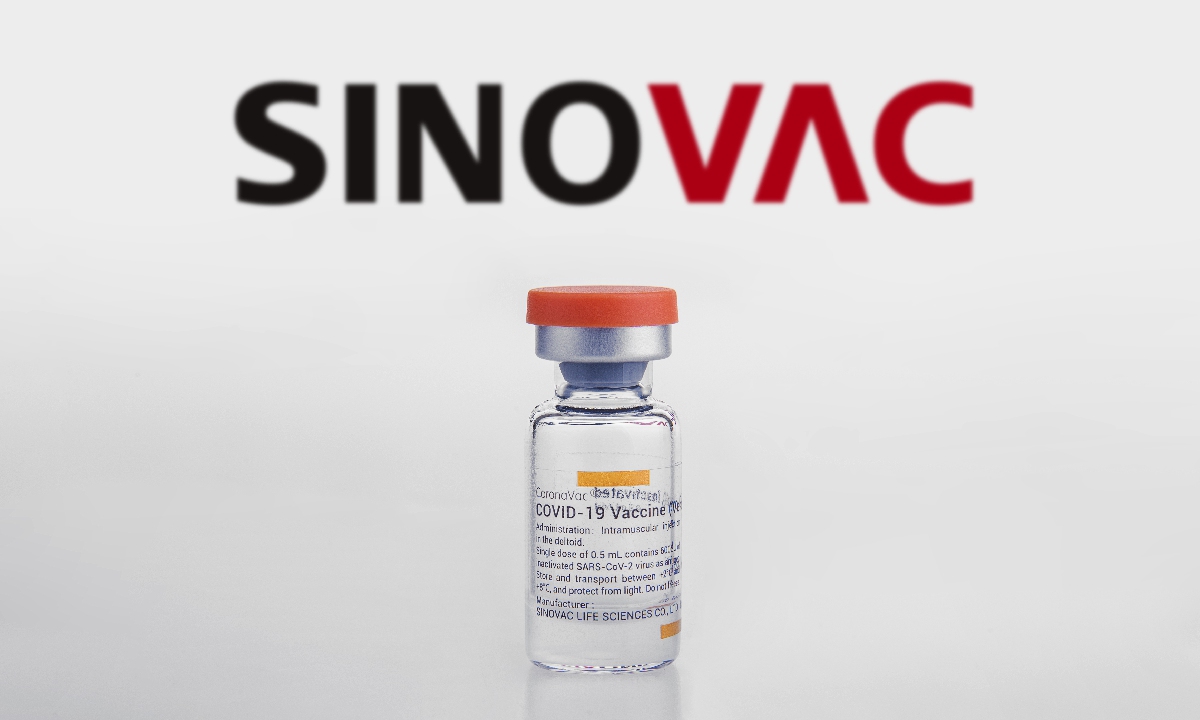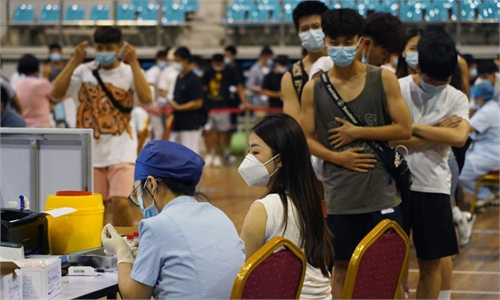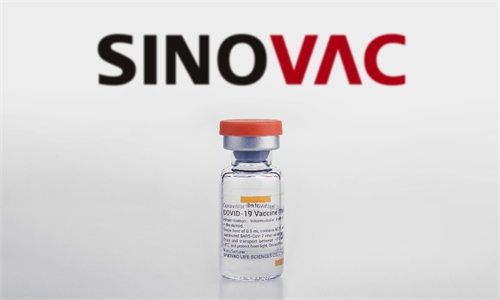Booster shots suggested for big events such as Winter Olympics amid Delta variant
Booster shots mulled to enhance immunity

Photo: courtesy of Sinovac
Existing vaccines are effective in dealing with the third wave pandemic caused by the Delta variant and booster shots are needed for future anti-epidemic strategy, Chinese medical experts said after Sinovac released the initial results of a Phase II clinical trial on booster shots of China-developed inactivated COVID-19 vaccines.The study, conducted in East China's Jiangsu Province since May 2020, found that although neutralizing antibody levels declined six months after two Sinovac shots, a two-dose vaccination schedule generates good immune memory, the Global Times learned from the company on Monday.
A third dose, given at an interval of six to eight months after the second dose, led to a strong boost in immune response, with geometric mean titers (GMTs) increasing to approximately 140.
The study also found that giving a third dose too early (28 days after the second dose) induced a much lower antibody level - only one-third compared with a third dose given six or more months after a second dose.
Optimizing the timing of a booster dose should take into account immunogenicity, vaccine efficacy/effectiveness, the local epidemic situation, infection risk, and vaccine supply, according to the study.
Provisions for booster shots in China would be highly probable, given the Sinovac clinical trial results, Zhuang Shilihe, a Guangzhou-based expert, told the Global Times on Tuesday.
Sheng Guoping, a doctor at Shulan Health in Hangzhou, East China's Zhejiang Province, told media that the level of antibodies would decline with time after vaccination, and accepting booster shots can help to ensure that there is always 60-70 percent of the population having antibodies in order to maintain herd immunity.
Sheng told media that groups of high infection risk can accept a test on antibody levels after vaccination and decide whether to accept booster shots based on the result. Those who accepted vaccines more than one year before can also consider accepting booster shots or even repeat the two-dose vaccination procedure, Sheng said.
As of Monday, more than 1.56 billion doses of COVID-19 vaccines have been administered in China while about 27.5 percent of the global population has received at least one shot as of the press time.
Taking the 2022 Beijing Winter Olympics as an example, Zhuang said that it is necessary for people who would attend the event to receive booster shots as many of them may accept vaccines more than six months before, while crowds would increase infection risks.
The Delta variant shows stronger immune escape and transmission capacity, Zhuang noted.
Gao Fu, director of the Chinese Center for Disease Control and Prevention, stressed the efficacy of existing COVID-19 vaccines in preventing severe sickness and death facing the third wave of the COVID-19 pandemic caused by Delta.
"COVID-19 vaccines can provide the most basic immunity to recipients, and they are also very effective in reducing a burden of diseases," Gao said at a forum on Tuesday.
Despite the arrival of the third wave of the pandemic, recent data from the UK showed an apparent decline in deaths, Gao noted, calling for the international community to share vaccines.
According to a BBC report on July 19, more people are testing positive for COVID-19 in Wales' third wave than in its second but the rate of deaths is lower, official figures show. Public Health Wales data shows by day 44 of the second wave, the average number of daily deaths was 5.4, six times higher than the 0.8 recorded at the same point in the third wave, the report said.


